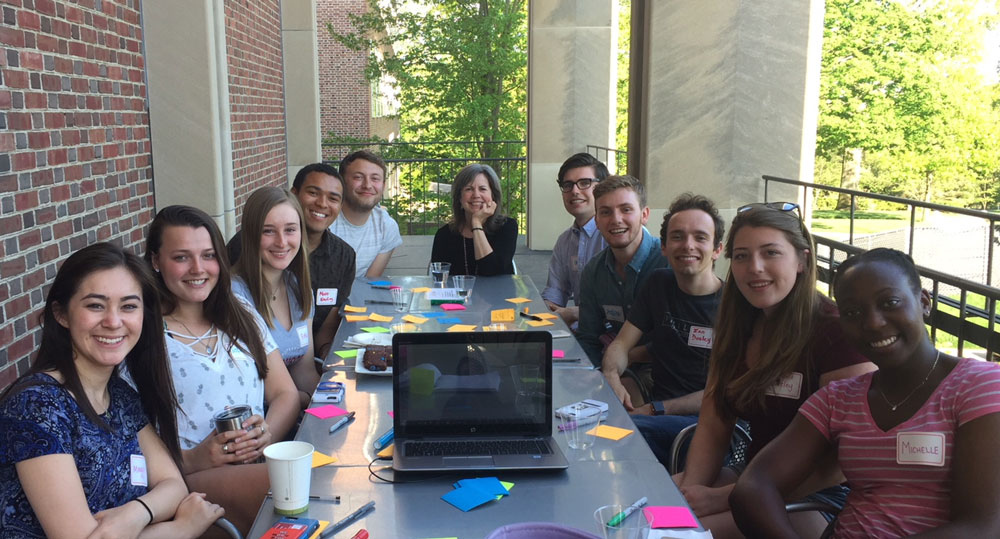In the Fall of 2018, new spaces on campus — in residence halls, for social gatherings, and even a new wellness center — will be the topic of a lot of conversation. And students from Denison’s Research, Engagement and Design Corps, or RED Corps for short, will be a real asset in helping the college get these new spaces right. Their work will generate foundational data about how the spaces can best function. And it will provide a great knowledge base for future jobs in market research, marketing, product development, and more.
These students will meet with professionals, architects, and design experts — even the Denison Board of Trustees — in their work as co-designers for these new spaces. They’ll get coaching on design and design thinking, research, communication, presentation, and storytelling through the Red Frame Lab.
These experiences, which include framing the right questions, developing research, crunching data, and arriving at solutions that really work, are transferable skills for careers across the professions, including business and finance, service and governmental work, and start-ups — any kind of work where there is a need to quantify and solve problems.
What is “Design thinking”?
The design thinking process gets to the best answers by asking the right questions — to the people who are most impacted. Knowledge from other sources, put together with data from the questions, leads to good ideas. Those ideas are modeled and tested, and that feedback is brought back into the process for more prototyping and testing. This refinement process ultimately results in the best answers to meet the needs of the people and circumstances involved.
So the need for good input from the community is one of the driving forces behind RED Corps. Vice President for Student Development Laurel Kennedy explains: “The residential master plan and the wellness center are both central to how students live on campus. It’s really important to get these right. The only way to do that is to make sure students’ voices, not to mention their imaginations, drive design. In addition to bringing student voices to these projects, this kind of approach to problem-solving is great professional development for Corps members.”
Political science and communication double major Matt Nowling ’21 shares, “We are developing fundamental pillars of the Denison experience. I’m looking forward to seeing how the changes we develop will impact the student experience in the future.”
Experience that can lead to professional success:
“Throughout the semester, faculty and staff at the Red Frame Lab will help these students gain special skills and knowledge that are especially appropriate for problem-solving in many professions, including business and finance, healthcare, logistics, and management,” added Julie Tucker, assistant vice president for Student Development, who oversees both the Red Frame Lab and student-centered research efforts for Denison.
The project will simulate a workflow similar to the type of project management adopted by professional organizations. “This is a real-world application of the analytical skills I’ve learned,” says data analytics major Ward Anderson ’21.
Professional development is on the mind of biology and Spanish double major Bella Kohrs ’20. “We are learning about data collection, how to increase community, and how to solve campus issues.”
She continues, “Each member will take away not only a thorough knowledge of how to improve and connect with their community, but how to work as part of a team.” The ability to work in teams is a skill routinely found near the top of employer “wish-lists” for employees.
In addition to the intellectual firepower brought by the students, the team as a collective also represents a broad swath of campus life, through their organizational involvement, academic disciplines, and class years.
“Incorporating different points of view, and learning to work across difference, builds a stronger result for the project — and the campus as a whole,” says Tucker. “Giving our students the opportunity to gain that kind of experience while working on a real-world project — and build in all the skills they’ll learn that are applicable to careers across professions — it’s really priceless.”
